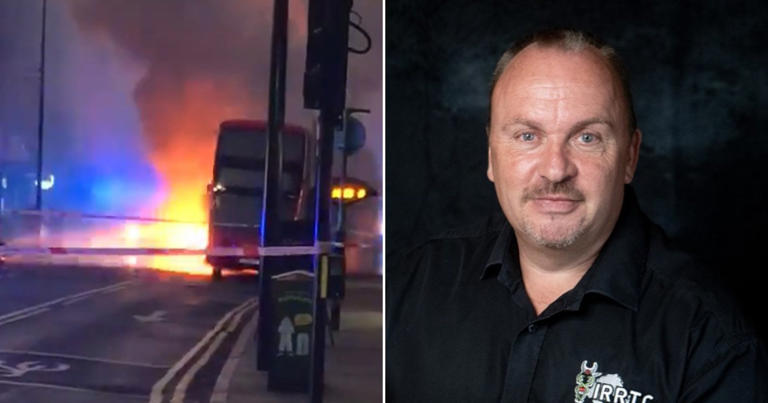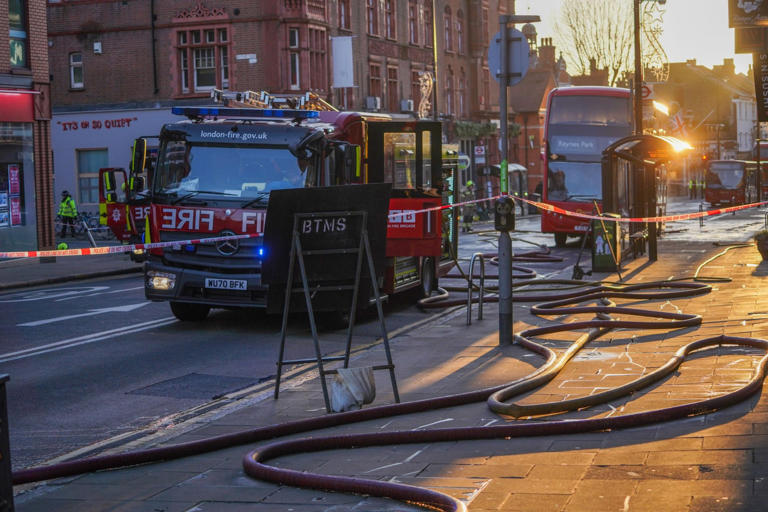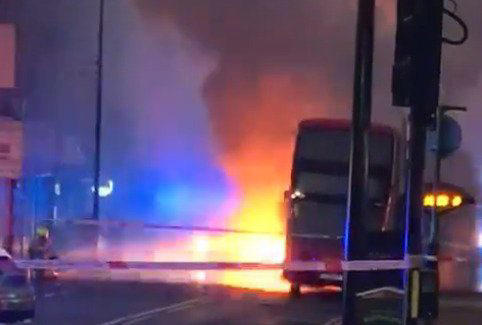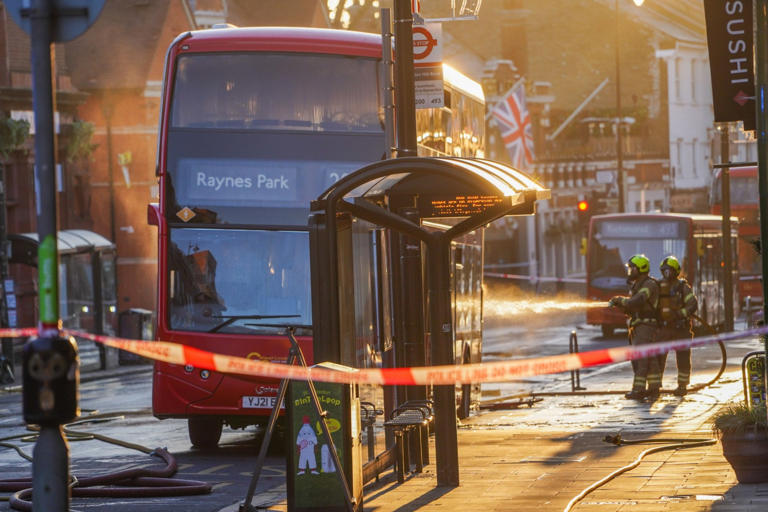UK
Ex-firefighter explains just how hard it is to extinguish a lithium battery fireStory by Jasper King • METRO UK

Neil Pedersen served as a firefighter for more than 30 years and retired in 2019 (Picture: Neil Pedersen)© Provided by Metro
An ex-firefighter has spoken out after an electric bus was engulfed in flames in south London this morning.
Neil Pedersen, 55, from Staffordshire, who served as a firefighter for Staffordshire Fire and Rescue for more than 30 years, warned there could be a ‘tsunami’ of electric vehicle fires in the future
The Met Police declared a critical incident after the blaze in Wimbledon, south London, at 7am this morning which TfL will investigate.
It is fires like these that prompted Neil to set up Fire Containers Ltd and the International Road Rescue and Trauma Consultancy (IRRTC) following his retirement in 2019.
Fire Containers Ltd assist emergency responders by designing and developing the world’s first patent Electric Vehicle Containment Unit (EVCU).
This has a built water supply which recirculates water for continual cooling against highly flammable lithium batteries.
His role is now about teaching the next generation of firefighters about the risks associated with electric vehicles and ways around dealing with these fires with the IRRTC.

Neil Pedersen explained why EV fires are so hard to put out for firefighters on the ground (Picture: Neil Pedersen)© Provided by Metro

A critical incident was declared by the Met Police following the blaze (Picture: Shutterstock)© Provided by Metro

The bus was eventually towed off after hours of delays for Londoners (Picture: Alamy Live News)© Provided by Metro
How are lithium battery fires put out?
Neil warned Metro: ‘There could be a tsunami of electric vehicle fires if action is not taken soon.
‘This is because they are basically chemical fires that spread from cell to cell and create a domino effect where water is useless against a blaze.
‘Firefighters have to use 10 to 15 times more water to tackle an EV fire over a petrol or diesel vehicle because of hazardous flammable toxic gasses it gives off from the lithium batteries.
‘Water is useless against these toxic gases and turns to steam.
‘What’s more, lithium batteries are on the bottom of electric vehicles and are hard for firefighters to tackle so this is where the EVCU comes in handy.’
But there is a problem because only Staffordshire Fire and Rescue Service and West Midlands Fire and Rescue have adopted EVCUs according to Neil.
With 20 million electric vehicles expected on the UK’s roads by 2032, up from 1.2 million in 2023, this poses a problem for fire services up and down the country.
The sale of electric vehicles outstripped diesel and petrol car sales in 2023 which Neil says will equate to more fires on the UK’s roads.

The bus burst into flames on a busy street (Picture: Facebook)© Provided by Metro

The area was cordoned off with a 25m metre perimetre (Picture: Shutterstock)© Provided by Metro
What could have caused the electric London fire?
Addressing today’s fire in London, Neil said: ‘It’s most likely that today’s electric vehicle bus fire in London was caused by an electrical fault and may not be linked to the lithium batteries if the fire started at the back of the bus.
‘This is because lithium batteries on electric buses are on the top of the front of the bus rather than the back.
‘But as the sale of electric vehicles continues to increase, fires like these are only going to become more common.
‘On average it takes firefighters four hours to extinguish EV fires and this is because of their lithium batteries and on average costs £1million an hour each time traffic is held up because of a burning vehicle.’
Have electric bus fires happened before?
The Wimbledon bus fire is not the first time an EV fire has caused chaos in London after a Potters Bar bus depot fire in 2019.
And there are safety concerns about a new Edgware EV bus garage proposed in north London.
Neil added: ‘The problem is that millions of electric vehicles are due to be sold with lithium batteries.
‘The way to prevent this is investment in new technologies to replace these highly flammable batteries.
‘Right now toxic gases are highly dangerous to the health and safety of firefighters on the ground as well.
‘These fires are virtually impossible to stop and until then we face an increase and likelihood of more.’
Get in touch with our news team by emailing us at webnews@metro.co.uk.
No comments:
Post a Comment